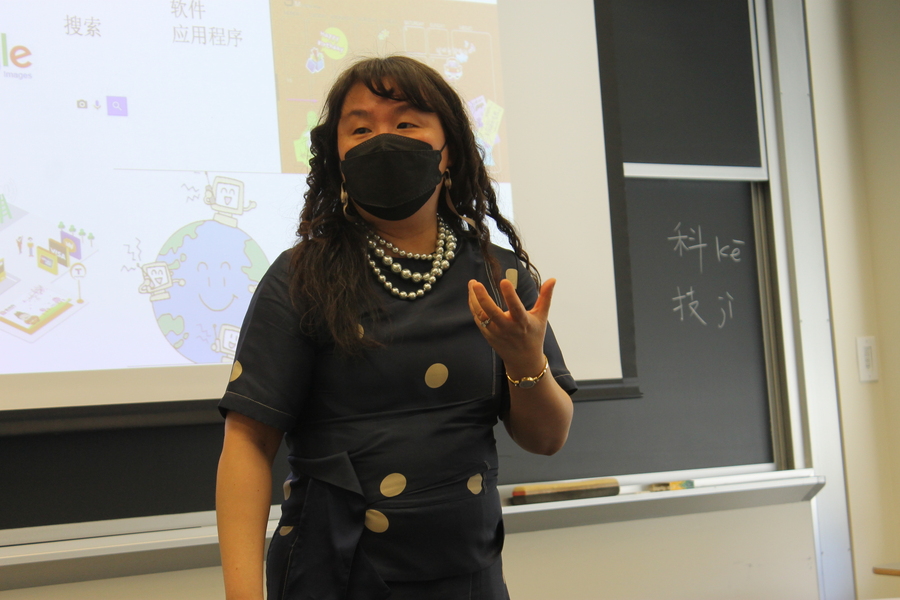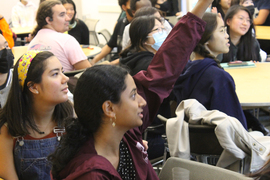MIT Lecturer Min-Min Liang has won the 2023 MAFLT LCTL Innovation Award in the Classroom Innovation category, offered by the National Less Commonly Taught Languages (LCTL) Resource Center at Michigan State University. Liang has taught Chinese at MIT for over 20 years as part of the Global Languages unit.
In making the award notification, the committee noted: “Your innovation stood out to the committee because of the ways your project allowed students to engage meaningfully both with the creative process as well as the intersection between language and identity. Well done!”
Liang won the award for her classroom unit in which Chinese heritage language students are asked to explore the meaning of their Chinese names and create an online book based on what they discover.
Despite growing up speaking some Chinese in the home, many heritage language learners may not have fluent language skills, and may not know the meaning of their names or how to properly write them in Chinese characters. Liang asks students, “Can you demonstrate how to write each character in your name? What is the meaning of each character? Why did your parents choose this name? What is the origin of your last name?” Students use various sources like dictionaries. But she also encourages them to discuss these questions with their parents.
Liang explains, “Understanding the meaning of your name is a way to make learning Chinese characters meaningful and relevant to students’ life experiences. But I also wanted to design a project that is interactive and student-centered, while reinforcing students’ skills.”
Liang discovered an online platform, Book Creator, that was the perfect tool to engage students in this project. Each student creates their own online book exploring the meaning of their names. The books are styled and decorated by the students and can incorporate audio clips, vocabulary lists, graphics, pictures, links, and more.
After the books are created, Liang assigns students in the class to each look at two other students’ books. “Students read the online books and then leave feedback in Chinese about what they liked about the book, and what they learned. This is followed by class discussions. Each student will share the two books they read with the classmates in the assigned group in class. In this way, the whole project has become very interactive. It starts with writing and reading skills and closes with speaking and listening skills. It is also students teaching students, and it gives students a lot of autonomy.”
Students frequently comment that they especially like learning more about their Chinese heritage: talking to their parents about their names, and sharing their books with family members.
Asked about her own name, Liang replied: “My first name is Min-Min, which means sensitive and smart. So this is a parent’s hope! We talk in class about why your parents name you — it’s their hopes and expectations.“
The award will be presented at the 27th annual conference of the National Council of Less Commonly Taught Languages in Chicago, April 21-23.









